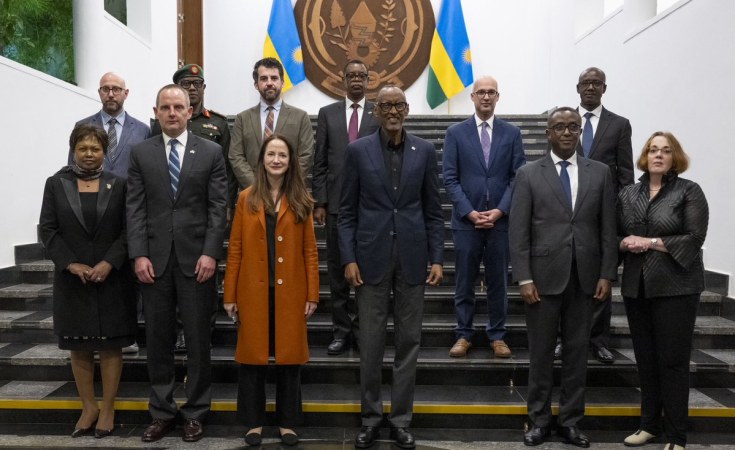Washington, DC — During her visit, Ms Haines engaged in crucial talks with Rwandan President Paul Kagame and Congolese President Felix Tshisekedi.
In a significant diplomatic move, America's topmost intelligence chief, US Director of National Intelligence (DNI) Avril Haines, traveled on a high-stakes visit to the Democratic Republic of Congo (DRC) and Rwanda between 19 and 20 November, as confirmed by the White House on 21 November.
In her delegation were Assistant Secretary of State for African Affairs Molly Phee and Special Assistant to President Biden and National Security Council Senior Director for African Affairs Judd Devermont. Ms Haines led the delegation focusing on de-escalating tensions in the troubled eastern DRC region.
During her visit, Ms Haines engaged in crucial talks with Rwandan President Paul Kagame and Congolese President Felix Tshisekedi, on commitments from both leaders to address and mitigate tensions in eastern DRC. The efforts aimed to alleviate the historical conflicts in the region, with Presidents Kagame and Tshisekedi planning specific steps drawn from previous arrangements supported by neighboring countries through the Luanda and Nairobi processes.
As the final outcomes of the US delegation remained undisclosed at the time of publication, the Biden administration expressed its support for, and commitment to monitoring, the steps taken by DRC and Rwanda towards de-escalation. Plans are underway to back diplomatic and intelligence engagements between the two countries, with the goal of enhancing security and prosperity for the people of both nations.
DR Congo crisis deepens as president moves to sack government
The visit occurred against the backdrop of rising tensions, notably highlighted in June when a UN Group of Experts obtained evidence of direct interventions by the Rwanda Defence Force (RDF) on DRC territory. Allegedly, these interventions aimed to reinforce M23 combatants and conduct military operations against the Forces démocratiques de libération du Rwanda (FDLR) and local armed groups. While the Rwanda government denies these allegations, the situation escalates.
Despite a high-level expression of concern by SADC leaders in early November, no confirmed troop deployment was officially announced. UN reports suggested that a SADC Mission in the DRC (SAMIDRC) force deployment had been expected by 30 September. Meanwhile, the ceasefire with the M23 remained fragile, adding complexity to the evolving situation in the region.
Pearl Matibe is a Washington, DC-based White House Correspondent, and media commentator with expertise in US foreign policy and international security. You may follow her on Twitter: @PearlMatibe


